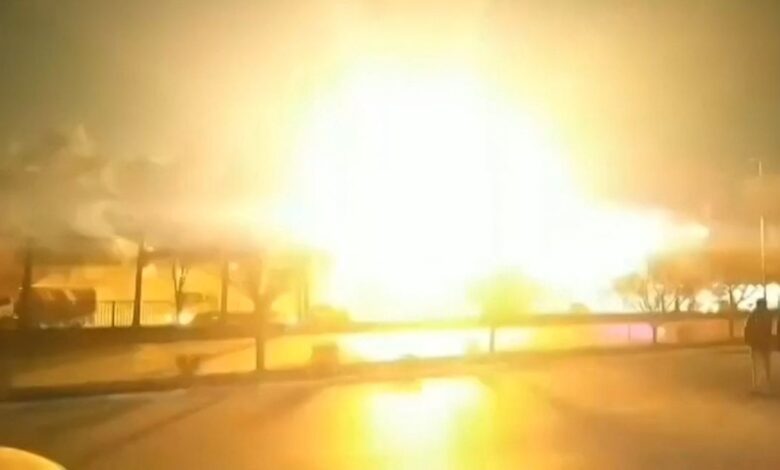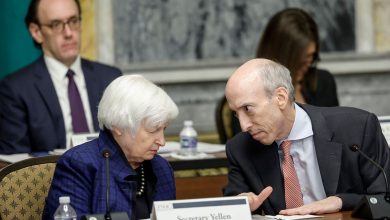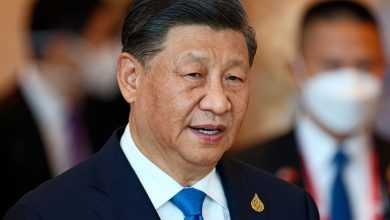What drone attacks on Iran mean for oil prices

[ad_1]
Heightened tensions in the Middle East, after Israeli drones carrying bombs reportedly attacked an Iranian defense factory in the central city of Isfahan, have done little to shake up the oil market — at least so far.
What happened
Authorities in Iran said Sunday that bomb-carrying drones targeted an Iranian defense factory, causing damage to the plant as regional and international tensions grow in the Islamic Republic, according to a report from the Associated Press.
The Wall Street Journal reported Sunday that Israel carried out the drone strike on the defense compound in Iran, citing U.S. officials and people familiar with the operation. The report pointed out that Israel’s strike comes as Israeli and American officials discuss new ways to combat what it referred to as Iran’s “destabilizing operations,” including its deepening military cooperation with Russia.
Last week, Rafael Grossi, the director general of the International Atomic Energy Agency, told a European Parliament subcommittee in Brussels that Iran has amassed enough material for “several nuclear weapons,” according to CNN.
Oil price reaction
The front-month benchmark contracts for U.S. and global oil futures gained overnight, following the news, but the rise was short-lived.
March Brent oil
BRNH23,
which expires at the end of Tuesday’s trading session, touched a high of $87.51 a barrel on ICE Futures Europe Sunday night, data from FactSet show. It has since pulled back to $85.78, down 88 cents, or 1%, from Friday’s settlement.
March West Texas Intermediate crude
CLH23,
CL.1,
climbed to as high as $80.49 a barrel on the New York Mercantile Exchange, though was last at $79, down 68 cents, or 0.9%, in Monday dealings.
What’s at stake for oil?
The attack on Iran’s weapons facilities could lead to “retaliations in the Middle East,” said analysts on the Kansas City energy team at StoneX, in Monday’s newsletter.
They pointed out that in 2019, drones used by Iranian-backed Houthi rebels were used to strike Saudi oil facilities, which spiked oil prices nearly 20%.
“Geopolitical price risk in the Middle East appears to have returned,” the analysts said.
Stephen Innes, managing partner at SPI Asset Management, said the focus of oil investors is on the risk of escalation, and any potential disruptions in the Strait of Hormuz, which is an “essential” oil transit chokepoint. The strait sees approximately 20 million barrels a day of oil flows.
The Strait of Hormuz links the Persian Gulf with the Gulf of Oman and the Arabian Sea. Oil tankers that carry crude from ports on the Persian Gulf must pass through the strait.
Calm for now
For now, the oil market has seen little lasting reaction to the increased tensions in the Middle East, with futures trading lower.
“Oil investors are going through a ‘geopolitical fatigue’ after having gone through so many tensions which have all failed to dent the flow of oil,” Manish Raj, managing director at Velandera Energy Partners, told MarketWatch.
“The resilience of Russian oil exports teaches an important lesson — despite geopolitical events, oil always finds a way to flow to the highest bidder,” he said. Iran, despite not having the political or economic clout as Russia, has still found a way to skirt international sanctions, he said.
Read: The EU’s latest embargo on Russia will keep diesel prices high
So unless the drone attack was on oil-producing facilities and curtailed production, “geopolitical tensions alone aren’t going to restrict oil flows,” said Raj. That’s especially true since the “world needs Iran’s oil while Iran needs the dollars, so this mutual dependence ensures that Iran’s oil trade continues.”
Still, analysts point out that oil exports from Iran appear to have increased.
Reports say that Iranian oil exports have climbed “thanks to relabeling them as Malaysian crude for Chinese buyers,” said Michael Lynch, president of Strategic Energy & Economic Research.
Iran exported nearly 840,000 barrels a day of petroleum products in 2021, up from about 700,000 barrels a day in 2020, according to the U.S. Energy Information Administration.
Even so, the increase in Iran oil exports should not affect the coming committee meeting of the Organization of the Petroleum Exporting Countries and their allies, Lynch told MarketWatch.
The OPEC+ Joint Ministerial Monitoring Committee (JMMC) will meet on Feb. 1 to review the oil market. It meets every two months and can’t make any changes to production policy, but can recommend a full OPEC+ meeting that may result in actual policy changes. The next gathering for the policy-setting OPEC+ is scheduled for June.
Read: OPEC+ committee meets next week with ample oil uncertainties to discuss
Iran’s rising tensions with Israel are “not going to be the primary focus at OPEC by any means, but it won’t improve the mood of the Gulf members,” Lynch said.
He said he doesn’t expect to see any changes to OPEC+ production quotas given that “prices are roughly at the sweet spot” — at least in his “my interpretation of what the Saudis want.”
[ad_2]
Source link



